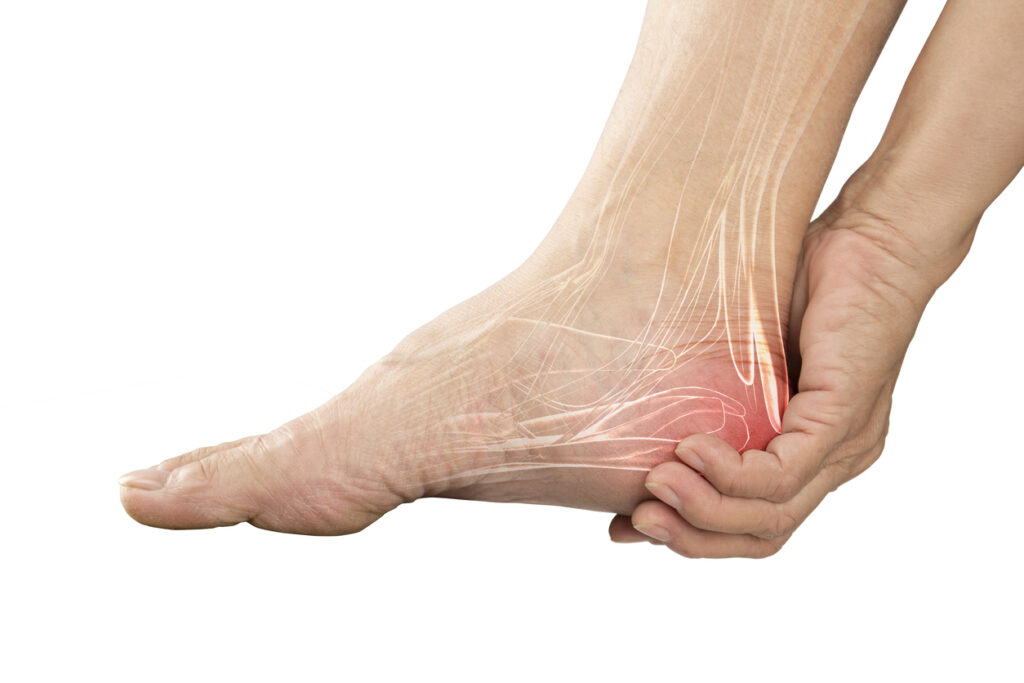What is PLANTAR FASCIITIS? ( Everything you need to know about HEEL PAINS)
If your first few steps out of bed in the morning cause severe pain in the heel of your foot, you may have plantar fasciitis (fashee-EYE-tiss), an overuse injury that affects the sole of the foot.
A diagnosis of plantar fasciitis means you have inflamed the tough, fibrous band of tissue (fascia) connecting your heel bone to the base of your toes.
There are many diagnoses within the differential of heel pain; however, plantar fasciitis is the most common cause of heel pain for which professional care is sought.
Too much pressure on your feet can damage or tear the ligaments; the plantar fascia becomes inflamed, and the inflammation causes heel pain and stiffness.
What are the symptoms of plantar fasciitis?
The major complaint of those with plantar fasciitis is pain on the bottom of the heel. But some people experience pain at the bottom mid-foot area. This develops gradually over time. It usually affects just one foot, but it can affect both feet. Some people describe the pain as dull, while others experience a sharp pain. Some people feel a burning or ache on the bottom of the foot extending outward from the heel.
The pain is usually worse in the morning when you take your first steps out of bed, or if you’ve been sitting or lying down for a while. Climbing stairs can be very difficult due to heel stiffness.
What causes plantar fasciitis?
You’re at a greater risk of developing plantar fasciitis if you’re overweight or obese. This is due to the increased pressure on your plantar fascia ligaments, especially if you have sudden weight gain. Women who are pregnant often experience bouts of plantar fasciitis, particularly during late pregnancy.
Occupations requiring walking or standing on hard surfaces, and running for exercise. Someone who has a foot with a very high or flat arch is also more likely to develop plantar fasciitis.
Plantar fasciitis is inflammation of the plantar fascia, either through overstretching, overuse or a medical condition.
It can be caused by:
- Playing sports that put stress on the heel bone, like running, dance and aerobics.
- Flat-footed or high arches.
- Being middle-aged or older.
- Being overweight.
- Pregnancy.
- Spending a lot of time on your feet.
- Wearing shoes with poor arch support or stiff soles.
Plantar fasciitis is often associated with a heel spur which is a spike of bone poking out from the heel bone, but many people have heel spurs without any pain.
How Can Someone Prevent Plantar Fasciitis?
Recurrent plantar fasciitis can be prevented only if a specific activity is known that caused the injury of the plantar fascia. Additionally, the use of an arch support, shoe orthotics, and stretching exercises for the foot can be helpful. These measures may improve the prognosis by preventing recurrent plantar fasciitis.
When Should Someone Seek Medical Care for Plantar Fasciitis?
Anyone with persistent foot pain or heel pain should seek medical evaluation. Chronic heel or foot pain can be due to arthritis or a bone fracture. Plantar fasciitis can be treated and function restored.
Years of experience of doing orthotic therapy have enabled me to be to be able to build you the best possible orthotic for your particular needs,be it foot pain,back pain,or even headaches a correctly built orthotic can help alleviate this and many other types of pain. Remember the foot is where it all begins,so REMEMBER to look after your feet.
If you have enquiries- feel free to give me a call at 353-86-323-9194.
P.S I’m on a mission to be the best physical therapist & acupuncture in my community!
EXPERIENCE INSTANT PAIN RELIEF & POWERFUL HEALING!


